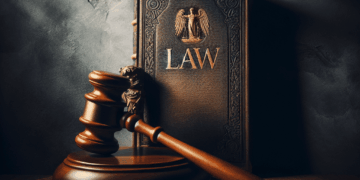No products in the cart.
Definition and legal basis:
Forfeiture is a legal institution of German civil law based on the principle of good faith (Section 242 BGB). It results in the loss of a right or claim if the entitled party has not exercised this right over a longer period of time and the obligated party was prepared and could have been prepared that the right would no longer be asserted. Forfeiture is not expressly regulated by law, but has been developed by case law.
Key Facts
- Forfeiture is based on good faith (Section 242 BGB) and can lead to the loss of a right.
- Two main components are decisive for forfeiture: the moment of time and the moment of circumstance.
- Difference to the statute of limitations: Forfeiture also occurs before the statute of limitations expires.
- Forfeiture applies in various areas of law such as the law of obligations and family law.
- The legal consequences of forfeiture include the loss of rights and the possibility of invoking forfeiture.
- The case law on forfeiture is constantly evolving and addresses new digital challenges.
- Critics criticize the legal uncertainty of forfeiture compared to the clear structure of the statute of limitations.
In contrast to the statute of limitations, which occurs solely due to the passage of time, forfeiture requires an additional circumstance that makes the delayed assertion of the right appear to be contrary to good faith.
Requirements for forfeiture:
Two main elements must be present for forfeiture to occur:
1. moment of time:
A longer period during which the right was not exercised. The required duration depends on the individual case and can range from a few months to several years.
2. circumstance:
The obligor must be able to rely on the fact that the right will no longer be asserted due to the conduct of the beneficiary and must be prepared to do so.
In addition, the delayed assertion of the right must appear to be contrary to good faith, which requires an overall weighing of the interests of both parties.
Areas of application and examples:
Forfeiture applies in various areas of law:
1. law of obligations:
– non-assertion of defect rights over a longer period
– late assertion of claims for damages
2. labor law:
– late challenge of termination
– non-payment of overtime remuneration
3. corporate law:
– late challenge of shareholder resolutions
4. intellectual property law:
– toleration of the use of trademarks or patents over a longer period of time
5. family law:
– Late assertion of maintenance claims
Differentiation from the statute of limitations:
Forfeiture differs from the statute of limitations in several respects:
1. legal basis:
Forfeiture is based on § 242 BGB, the statute of limitations is regulated by law (§§ 194 ff. BGB).
2. time:
Forfeiture can occur before the expiry of the limitation period.
3. prerequisites:
Forfeiture requires a circumstance in addition to the passage of time.
4. effect:
Forfeiture leads to loss of rights, limitation only to a defense.
5. consideration:
Forfeiture must be considered ex officio, the statute of limitations must be objected to.
Legal consequences of forfeiture:
Forfeiture has far-reaching consequences:
1. loss of rights:
The forfeited right can no longer be enforced.
2nd defense:
The obligor can invoke forfeiture.
3. partial forfeiture:
In some cases, only part of the claim may be forfeited.
4. no retroactive effect:
Forfeiture is only effective for the future, not retroactively.
Practical significance and challenges:
Forfeiture plays an important role in legal practice:
1. legal certainty:
It protects the trust of the obligor and promotes legal certainty.
2. flexibility:
Enables a case-by-case solution in contrast to a rigid limitation period.
3. questions of proof:
The presentation and proof of the conditions for forfeiture can be difficult.
4. demarcation problems:
The distinction between the statute of limitations and other legal institutions can be complex.
Current developments and case law:
The case law on forfeiture is constantly evolving:
1. differentiation:
Increasingly finer gradation of forfeiture requirements depending on the area of law.
2. digitalization:
New issues in the context of digital communication and online business.
3. international aspects:
Consideration of forfeiture in cross-border legal relationships.
4. relationship to the statute of limitations:
Discussion of the interplay between forfeiture and statutory limitation.
Criticism and discussion:
Forfeiture is not uncontroversial:
1. legal uncertainty:
Critics criticize the unpredictability of forfeiture compared to the statute of limitations.
2. judicial development of the law:
The lack of statutory regulation is sometimes seen as problematic.
3. balancing of interests:
The necessary balancing of the interests of both parties can lead to different results.
In summary, forfeiture is an important corrective in civil law that makes it possible to avoid undue hardship that can arise from the delayed exercise of rights. It requires careful examination and consideration of the circumstances of the individual case. In a rapidly changing legal and economic world, forfeiture remains a flexible instrument for ensuring good faith in legal transactions, but it must be applied with caution and in consideration of all relevant factors.





















